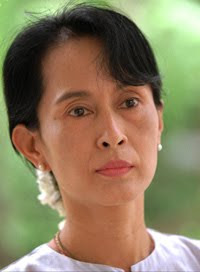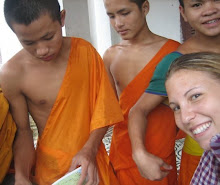 On November 9, Germany celebrated the 20th anniversary of the fall of the Berlin Wall, which reconciled the East and West after 28 years of separation, and marked the beginning of the collapse of communism in Europe.
On November 9, Germany celebrated the 20th anniversary of the fall of the Berlin Wall, which reconciled the East and West after 28 years of separation, and marked the beginning of the collapse of communism in Europe.It became a symbol of freedom and unity - an image so powerful that people can still recall the exact moment they heard the news. I was six and watched the event unfold on our kitchen's television screen. Though I could not understand at the time its importance, the live historical moment has remained ingrained in my memory, much like sadder news of 9/11 will also likely stay forever in the minds of those who lived through it.
While the Berlin Wall's fall is certainly an event worthy of celebration, it should also be an occasion to bring attention to the many walls that have sprung up since, around the world, as obstacles to freedom, equality, and peace.
Five examples, some better-known than others, come to mind:
 1) The wall dividing Israel and the Western Bank is 8 meters high and when completed will be 703 kilometers long. It is claimed by the Israeli government to be protecting its citizens from suicide bombers but has been condemned by the International Court of Justice as contrary to international law. An Amnesty International 2004 report states:
1) The wall dividing Israel and the Western Bank is 8 meters high and when completed will be 703 kilometers long. It is claimed by the Israeli government to be protecting its citizens from suicide bombers but has been condemned by the International Court of Justice as contrary to international law. An Amnesty International 2004 report states:Since the summer of 2002 the Israeli army has been destroying large areas of Palestinian agricultural land, as well as other properties, to make way for a fence/wall which it is building in the West Bank. In addition to the large areas of particularly fertile Palestinian farmland that have been destroyed, other larger areas have been cut off from the rest of the West Bank by the fence/wall. The fence/wall is not being built between Israel and the Occupied Territories but mostly (close to 90%) inside the West Bank, turning Palestinian towns and villages into isolated enclaves, cutting off communities and families from each other, separating farmers from their land and Palestinians from their places of work, education and health care facilities and other essential services.
2) The Mexico-United States barrier consist of fences at the border of both countries and is an attempt by the US to curb illegal immigration and prevent drug trafficking. Several people have died trying to cross the border, and the wall has been causing damages to the environment and the animal habitat.
3) A lesser known "wall of shame" is The Berm of Western Sahara, a 2,700 km sand wall separating the areas controlled by Morocco from those controlled by the Polisario. The two sides have been in dispute ever since the territory gained independence from Spain in 1975.
Morocco (and Mauritania, which later gave up its claim) immediately seized the opportunity to annex the territory - a move that has not been recognized by the international community and been condemned by the International Court of Justice.
Western Sahara is considered a non self-governed territory by the United Nations, though the Sarahwi people are still working tirelessly for Western Sahara's independence through the Polisario Front, and have been diplomatically recognized by 82 countries (not a single European country though). In the meantime they control the mostly un-habited "Free Zone" while most of their people have been forced into exile and live as refugees in camps set up in neighboring Algeria.
4) Even on the small island of Cyprus governments have managed to keep people separated. The island has been divided for over three decades between the Greek Cypriots on one side and the Turkish Cypriots on the other side of the "Green Line". A symbolic wall separating the North from the South side of capital city of Nicosia, gives it the title of "the world's last divided capital".
Since April 2008 though, efforts have been made to reunify the island and the wall dividing the two communities at Ledra Street was opened, allowing people to cross from one side to another for the first time since 1964. It became the sixth crossing between the southern and northern parts of Cyprus and opened up hope that the walls will be teared down for good in the near future.
5) Finally, the DMZ separating the North from South Korea, has divided peoples for more than 50 years and made North Korea one of the most isolated nations on Earth. The Korean DMZ remains the most heavily militarized border in the world, dividing a prosperous and successful country from one the poorest and harshest.
Let us hope that these walls, like the Berlin Wall 20 years ago, will soon fall under the weight of freedom and the power of the people to overcome the obstacles that these walls so concretely express.
In the meantime, like the West Berliners who turned a symbol of darkness around with their tags and graffiti of hope (pieces that eventually became collectors' items), here is a touch of poetry in an otherwise mass of grey - courtesy of Banksy (Palestinian side of the wall):


If you would like to have your own personal message of hope, peace, and love tagged on the wall, and help local Palestinians make a bit of cash, check out this cool initiative.




